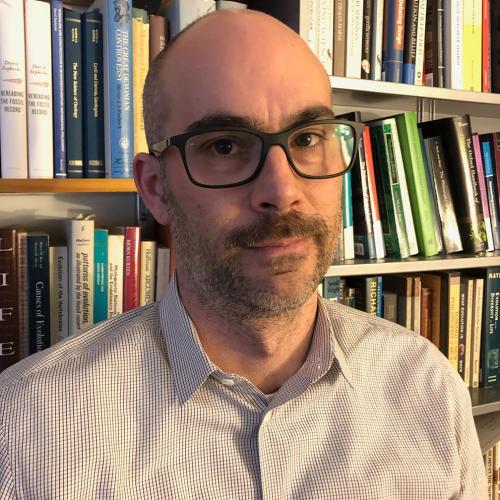Two professors at the University of Illinois at Urbana-Champaign have been awarded a 2020 Guggenheim Foundation Fellowship.
This year’s fellows are David Sepkoski, a professor of history and iSchool affiliate professor, and Janice N. Harrington, a poet and professor of English.
They are among 175 writers, scholars, artists and scientists from the U.S and Canada chosen "on the basis of prior achievement and exceptional promise," according to the John Simon Guggenheim Memorial Foundation's news release. The winners were selected through a rigorous peer-review process from nearly 3,000 applicants.
Sepkoski is the Thomas M. Siebel Chair in History of Science at Illinois. His research deals with the interaction between science and society, with a focus on the biological and environmental sciences. His book Catastrophic Thinking, on the history of scientific ideas about extinction and the value of diversity, will be published this summer.
Sepkoski will use his fellowship to work on a book about scientific debates in recent decades over the biological and genetic basis for human nature. The book will span from the 1970s controversy over sociobiology–a theory that explains human abilities as primarily determined by evolution and genetics–to the decoding of the human genome.
"I've long been fascinated by scientists' own accounts of the 'political' nature of their work," Sepkoski said. "During the 1970s, heated debates about the validity of pursuing biological or genetic explanations for behavioral traits like intelligence, altruism, monogamy, etc., captured wide public attention and informed broader cultural conversations about race, gender and social equality in the U.S. and elsewhere."
"Strikingly, proponents of sociobiology and other forms of biological determinism often defended their conclusions about innate human differences in individuals or groups as being objective or neutral, while characterizing their scientific critics as being motivated by politics or ideology," he said. "But if the history of science tells us anything, it is that scientific theories often have considerable social and political impact, and scientists cannot detach themselves from broader political commitments, especially when discussing human nature."
